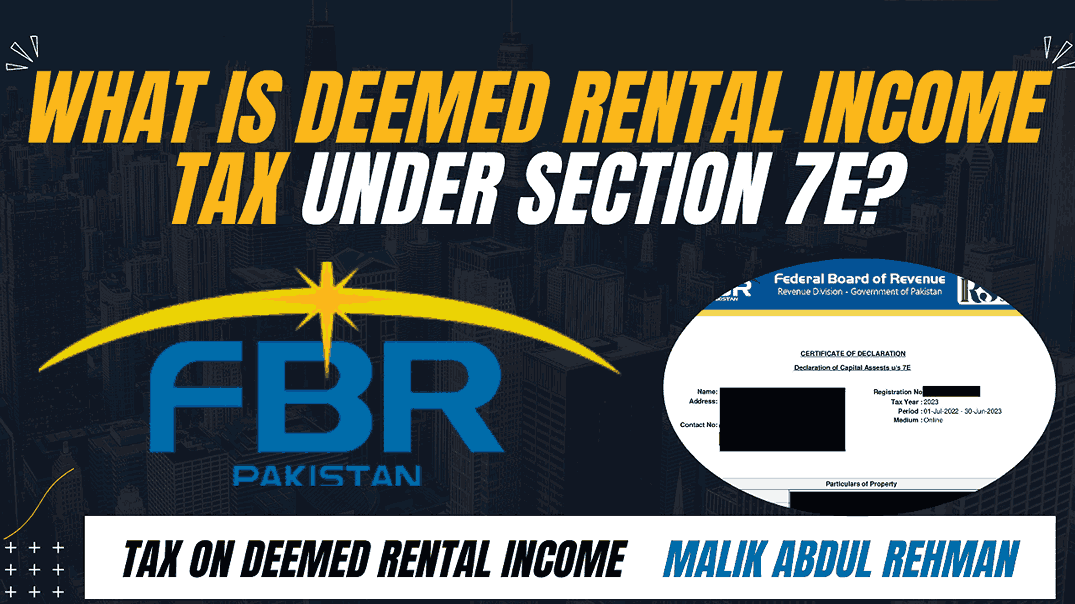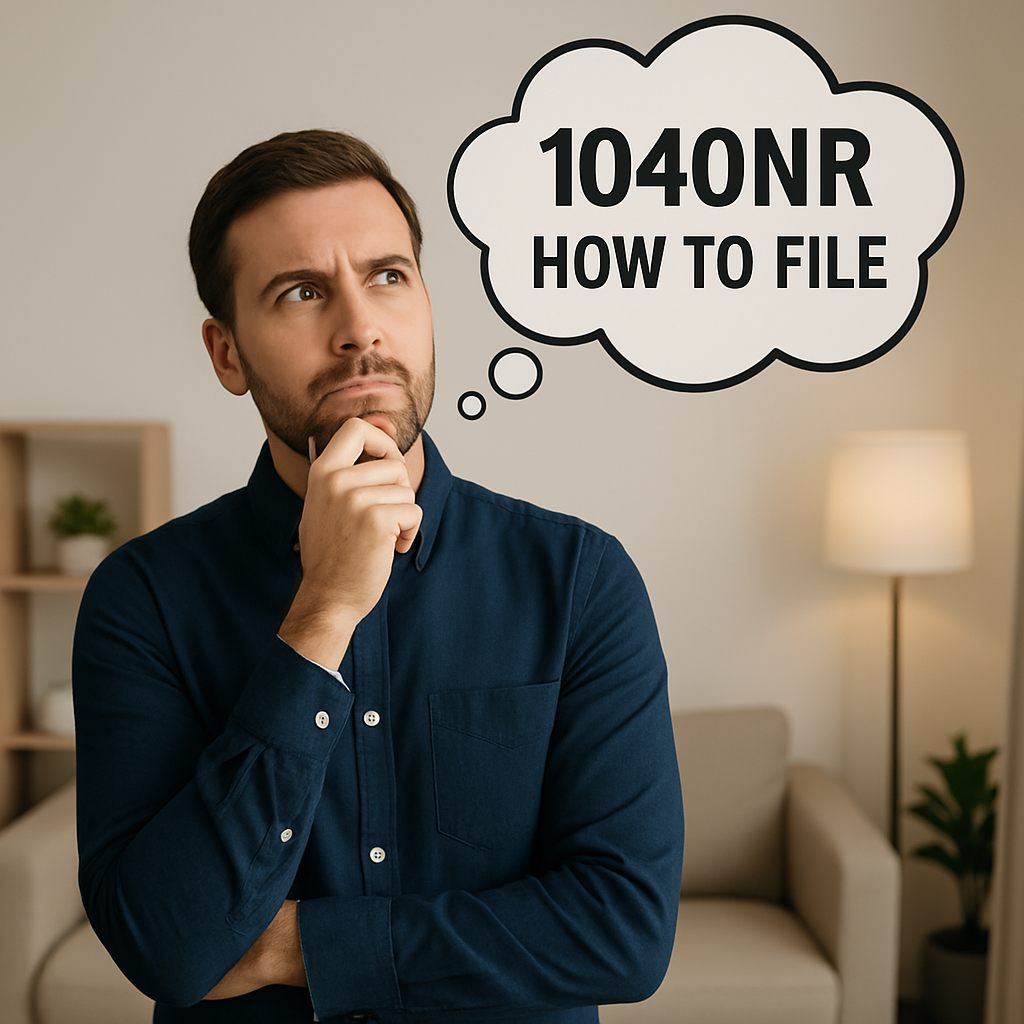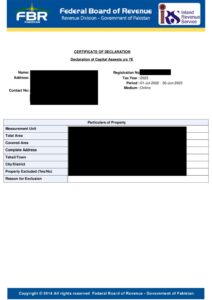Table of Contents
Understanding Section 7E: A Comprehensive Guide to Deemed Income Taxation in Pakistan
In this article, we delve into the interaction with Section 7E, a notable addition to the tax laws in Pakistan, and its implications for taxpayers. The introduction of Section 7E in the Income Tax Ordinance, 2001, has sparked debate due to its nature as a capital value tax, leading to discussions on the jurisdiction of its imposition.
Defining Deemed Income And Fair Market Value
Deemed income refers to an artificial income assigned by the tax authorities, while fair market value (FMV) represents the value officially notified by the Federal Board of Revenue (FBR). Under Section 7E, deemed income is calculated as 5% of the FMV, and this amount is subject to a tax rate of 20%.
Practical Example:
Sure, let’s create a hypothetical scenario to illustrate how Section 7E might impact an individual taxpayer in Pakistan.
For example, if an individual owns a property with an FMV of Rs. 26 million, the deemed income would be Rs. 1,300,000 (26 million x 5%), and the tax payable on it would be Rs. 260,000 (1,300,000 x 20%), effectively resulting in a 1% tax on the property’s FMV.
Concerned about the unexpected tax liability, Ali seeks further clarification on whether any exemptions apply to his situation. The tax advisor explains that while certain exceptions exist, such as properties owned by active taxpayers or those falling below a certain threshold, Ali’s inherited land does not qualify for exemption under any of the specified categories.
This hypothetical example illustrates how Section 7E can directly impact individual taxpayers like Ali, prompting them to consider various strategies to manage their tax liabilities effectively.
Exceptions:
However, several exceptions exist where the tax on deemed income doesn’t apply:
- One capital asset owned by the resident person.
- Self-owned business premises from where the business is carried out by the persons appearing on the active taxpayers’ list at any time during the year.
- Self-owned agricultural land for agricultural activities (excluding farmhouses and annexed land).
- Capital assets allotted to:
- Shaheed or dependents of a Shaheed belonging to Pakistan Armed Forces.
- A person who dies while in the service of the Pakistan Armed Forces or the Federal and Provincial Government.
- A war-wounded person while in the service of the Pakistan Armed Forces or Federal or Provincial Government.
- An ex-serviceman and serving personnel of armed forces or ex-employees or serving personnel of Federal and Provincial Government.
- Any property from which income is chargeable to tax under the Income Tax Ordinance and tax leviable is paid thereon.
- Capital asset in the first tax year of acquisition where tax under section 236K has been paid.
- Where the fair market value of the capital assets in aggregate does not exceed Rupees twenty-five million.
- Capital assets owned by a provincial government or a local government.
- Capital assets owned by a local authority, a development authority, builders, and developers for land development and construction.
It’s important to clarify that capital assets encompass various properties regardless of business use, excluding specific categories like stock-in-trade, shares, stocks, securities, any moveable or depreciable asset.
Applicability of Section 7E only on Resident Persons.
Provisions of section 7E are applicable only on resident persons. Non-resident individuals, including non-resident Pakistanis, are not required to pay tax under section 7E.
Recent Amendments And Developments
Another significant amendment by way of Finance Act, 2023, has been introduced whereby any person responsible for registering, recording, or attesting transfer of any immovable property is prohibited from registering, recording, or attesting such transfer unless he is satisfied that the seller or transferor has discharged its tax liability under section 7E.
However, the validity of this newly introduced section has been challenged in the Lahore High Court. Therefore, to further enhance clarity on deemed income taxation, the FBR issued circular no. 03 of 2023, refining the taxation provisions for the sale or purchase of immovable property. The circular also clarified that contents of the Circular will not apply in cases falling in the Jurisdiction of the Honorable Lahore High Court concerning the Judgment in WP no. 52559 of 2022 dated 06-04-2023 unless the said judgment is reversed, suspended, or vacated in an Appeal or by the Honourable Supreme Court of Pakistan.
Lastly
Section 7E’s introduction has undoubtedly raised questions and discussions within the tax landscape. While its validity is being considered in different superior courts, understanding its provisions and implications is crucial for taxpayers. As legal interpretations evolve, staying informed is vital for navigating the evolving tax environment effectively.
Frequently Asked Questions
Frequently Asked Questions About Section 7E and Deemed Income Taxation in Pakistan
1. What is Section 7E in the Pakistan Income Tax Ordinance, 2001?
Section 7E is a provision introduced in the Income Tax Ordinance, 2001, which imposes a tax on deemed income from certain immovable properties in Pakistan.
2. How is deemed income calculated under Section 7E?
Deemed income is calculated as 5% of the fair market value (FMV) of the property, as officially notified by the Federal Board of Revenue (FBR).
3. What is the tax rate on deemed income under Section 7E?
Deemed income is subject to a tax rate of 20% in Pakistan.
4. Are exemptions available to non-active individuals under Section 7E?
No, exemptions are not available to non-active individuals under Section 7E. Exemptions are exclusively available to active taxpayers, meaning individuals who are not actively filing taxes are ineligible for these exemptions.
5. Are there any specific conditions triggering the application of tax under Section 7E?
Yes, tax under Section 7E is only applicable under certain conditions. One such condition is when the aggregate Fair Market Value (FMV) of all other Capital Assets exceeds PKR 25 million. Additionally, exemptions from this tax are available only to active taxpayers, meaning non-active individuals are not eligible for these exemptions.
6. Are there any exceptions to the tax on deemed income?
Yes, certain exceptions exist where the tax on deemed income does not apply, such as ownership of a single capital asset, self-owned business premises used by active taxpayers, and self-owned agricultural land used for agricultural activities.
7. Who is required to pay tax under Section 7E?
Tax under Section 7E is applicable only to resident individuals in Pakistan. Non-resident individuals, including non-resident Pakistanis, are exempt from this tax.
8. What recent amendments have been made regarding Section 7E?
The Finance Act of 2022 introduced taxation of deemed income on immovable properties owned by resident individuals, effective from Tax Year 2022 onwards. Subsequent amendments in the Finance Act of 2023 granted exemption from deemed income tax to individuals listed on the Active Taxpayers’ List (ATL).
9. What is the implication of the prohibition on registering or attesting property transfers under Section 7E?
The prohibition prevents the registration, recording, or attesting of the transfer of immovable property unless the seller or transferor has discharged its tax liability under section 7E, ensuring compliance with tax obligations.
10. What steps can taxpayers take to navigate Section 7E effectively?
Taxpayers should stay informed about the provisions and implications of Section 7E, consult with tax advisors to understand their obligations, and monitor any developments or amendments related to deemed income taxation in Pakistan.
11. How can taxpayers seek further clarification or assistance regarding Section 7E?
Taxpayers can reach out to relevant tax authorities or seek guidance from professional tax advisors for assistance with understanding and complying with the requirements of Section 7E in Pakistan.
How Can I Help You?
- Return Filing Services:
- Whether you need assistance with individual or business returns, I’ve got you covered. Your returns will be prepared professionally and in accordance with Income Tax rules.
- Customized Solutions:
- Have specific requirements or unique situations? Let’s discuss your needs, and I’ll tailor my services to meet your individual circumstances.
Contact Options:
- YouTube Description:
- Find my number in the YouTube description and drop me a message. I’ll get back to you as soon as I’m available.
- Website:
- Visit my website and give me a call or leave a message. I’ll respond promptly to address your queries.
- WhatsApp:
- Prefer WhatsApp? Feel free to send me a message, and I’ll assist you as soon as I’m available.
Professional and Rule-Compliant Services: Rest assured that the services provided will be professional and adhere to Income Tax rules. Your peace of mind is my priority, and I’m committed to offering you the best solutions.
Feel free to reach out whenever you have questions or require assistance with your income tax matters. Looking forward to helping you navigate the world of taxation seamlessly! JazakAllah!







